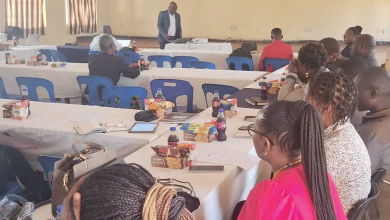African Parks unveils plans for Nkhotakota Wildlife Reserve
African Parks has unveiled plans to develop a land management strategy for Nkhotakota Wildlife Reserve to help manage the 1 800 square kilometre protected area.
The reserve’s parks manager David Nangoma laid out the plans on Wednesday in Kasungu during a meeting convened to brief stakeholders on the implementation progress and challenges the park has experienced in 2025 and also solicit inputs into the draft plan.
He said: “This plan outlines activities we will implement in the long-run. It is our master guide for management interventions, looking at all aspects of the ecology, infrastructure development and tourism management.”

| Wanangwa Tembo
Nangoma said African Parks has also invested in making the reserve attractive to tourists by developing tourism facilities such as Navunde Stopover and Chipata Camp.
“There has also been reintroduction of some species such as pangolins, pythons, vervet monkeys, serval cats and bushbucks in the reserve,” he said.
Nangoma, however, lamented the wanton gold mining taking place in the reserve.
“Of late, we have been seeing scores of illegal miners coming to the reserve and our numbers cannot match. For that reason, we really look up to government to support us solve this problem,” he said.
On his part, Department of National Parks and Wildlife division manager (Centre) Leonard Moyo said the department was aware of the illegal gold mining activities in the reserve and is working with African Parks to mitigate the problem.
He said: “There have been a number of approaches on how to handle this issue through engagements with various government agencies such as the Ministry of Mining to support the prosecution of wildlife cases.
“Each time illegal resource users are arrested, they are taken for prosecution in Kasungu where our wildlife prosecutor is based and is doing well in that regard.”
Other illegal activities in the reserve include fence vandalism, fishing with harmful chemicals, poaching and charcoal production.





